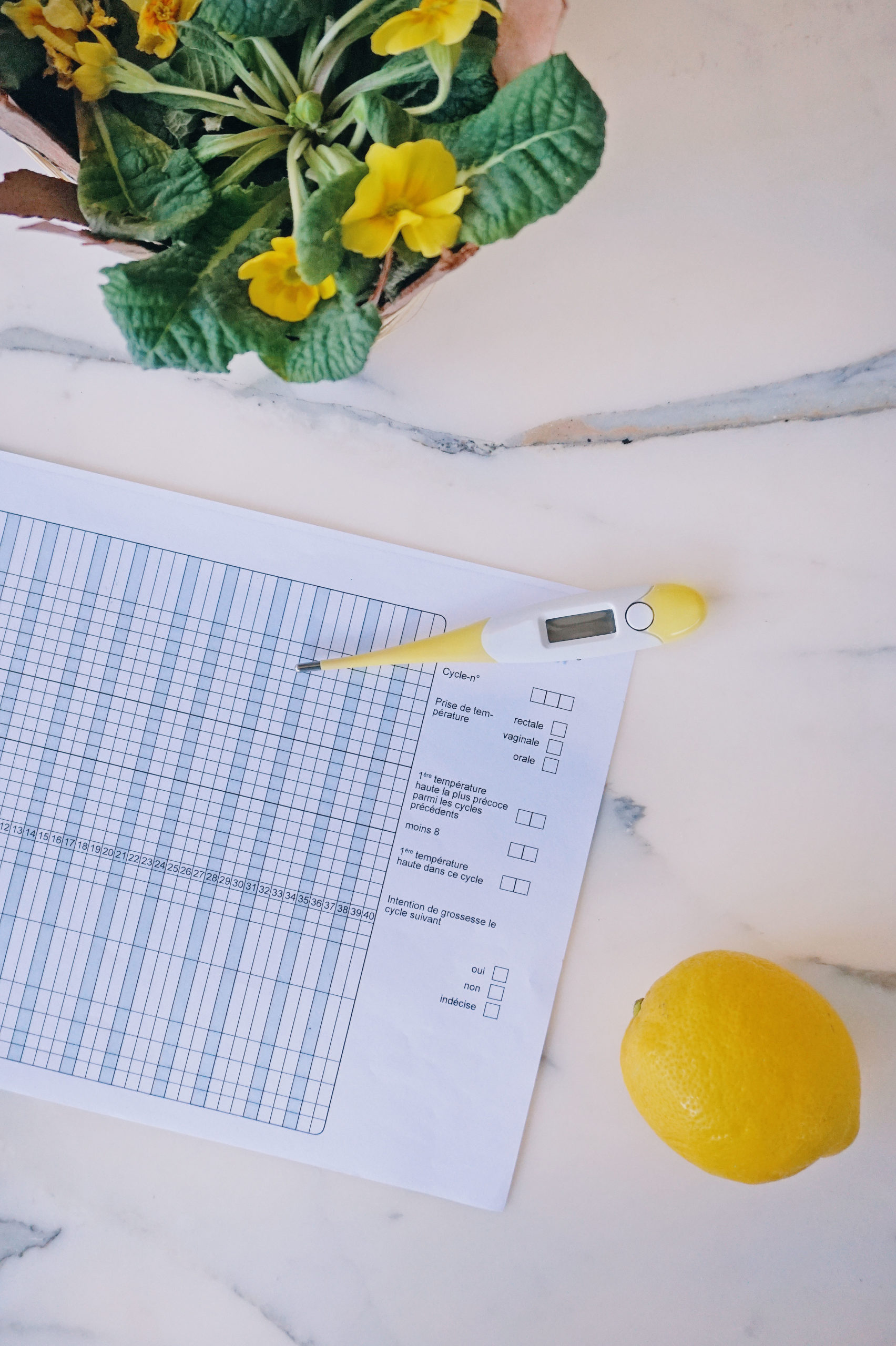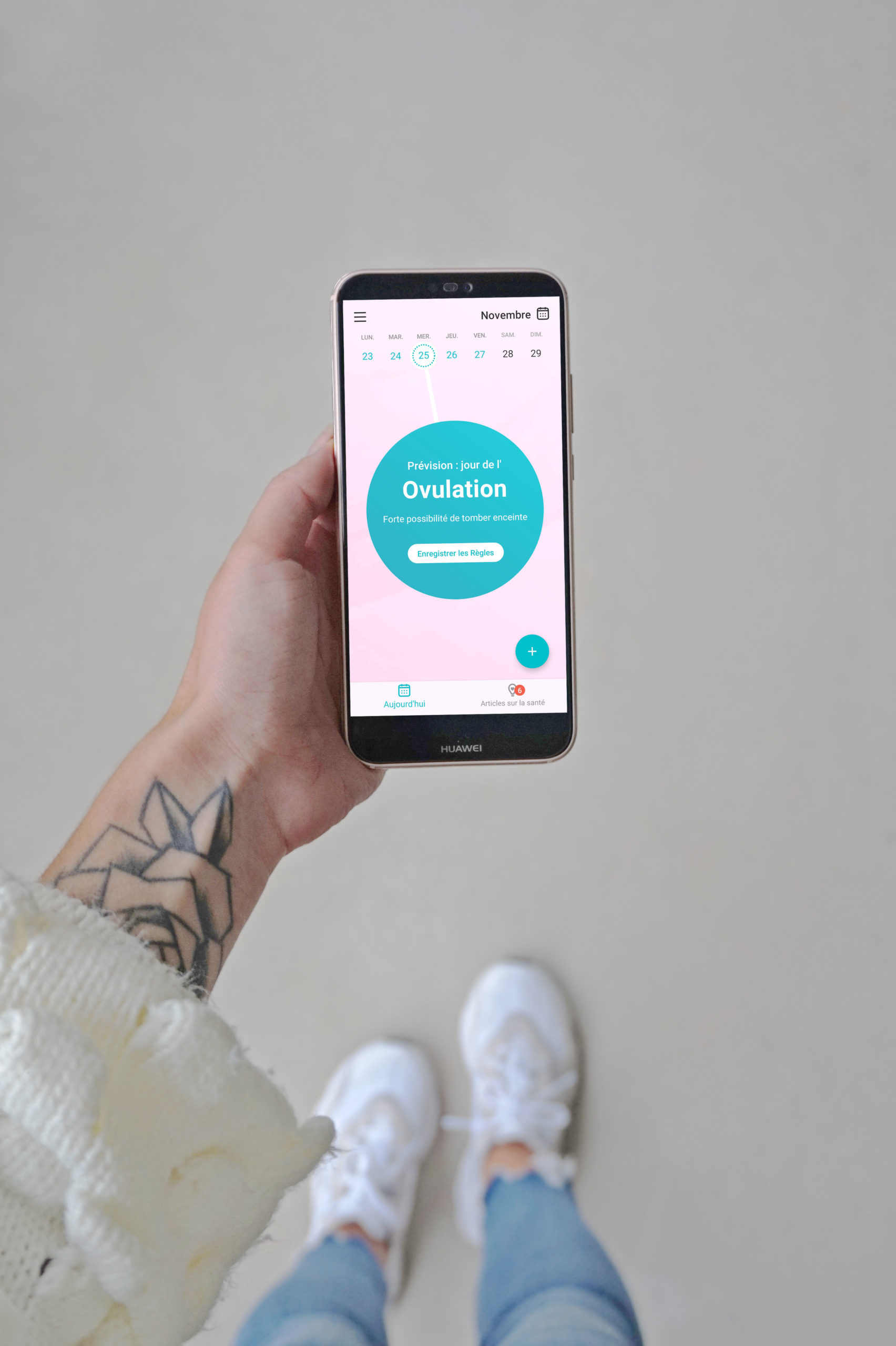We see more and more cycle tracking apps that promote themselves as natural ways to monitor fertility. But are those birth control apps trustworthy?
We all know these apps that track your menstrual cycle and predict your next periods.
I have been using Flo for years. In the beginning, it was only to know “when my next periods would come”.
But women becoming aware of how hormonal birth control affect their bodies, more and more fertility apps appear, in the race to become the best natural birth control.
We saw it in the US with Natural Cycles and more recently in Europe with Daysy (which I tested myself).
Today, the “modern fertility awareness methods” are expanding and becoming more and more popular.
But are those birth control apps trustworthy? Can we really use them as birth control?
What these apps are based on
The cycle tracking apps base themselves on the Fertility Awareness Method (FAM); a natural method to monitor fertility by observing the woman’s body change through the cycle.
These changes are noticed in the basal temperature, cervical mucus, and cervix position.
The traditional method has been modernized through these apps and fancy monitors.
They supposedly work the same way, by collecting users’ data such as the temperature, cervical mucus appearance and consistency, and cervix position.
With this information, the app should be able to analyze the cycle (by referring to an algorithm) and determine fertile and infertile phases.
Yes, we are talking about a device telling you if you’re fertile or not.
Compromised reliability?
What we should all know about these apps (and it’s actually the case for Natural Cycles and Daysy), is that most of them only take one parameter into consideration: temperature.
However, this is not enough if we refer to the classic FAM method, which requires taking at least two parameters. Knowing:
BASAL TEMPERATURE + CERVICAL MUCUS APPEARANCE & CONSISTENCY
OR
BASAL TEMPERATURE + CERVIX POSITION
It is only when both of the two chosen variables don’t show a fertility sign that you can confirm the fertile period is over.
It’s totally possible that your temperature says “you’re infertile” when your cervical mucus says “hey, you’re still fertile”.
This is what actually happened to me when using Daysy. And this could have been a risk of me getting pregnant.
That’s the reason why the classical FAM requires a double-check; the temperature on itself doesn’t say enough of your fertility status!
Another thing to know is that many external factors such as stress, alcohol, or medication can alter your temperature.
Fortunately, some apps such as Moonly (French) or Kindara are now following the traditional method, by taking all the variables into consideration.
I didn’t test them nor compared them with the FAM as I did with Daysy. I’m therefore not in the right position to give you an objective opinion.
But to be honest, I’m still skeptical about letting technology analyzing my cycle…
Are birth control apps trustworthy? Here’s my opinion
You probably guessed it, fertility tracking apps, for me, it’s a no-no. I will keep using traditional FAM with a pen and paper.
Not only because I’m an old-school gal (yes, the kind who still have a paper planner), but for many other reasons too :

Wrong use of the method
As I mentioned, many of these applications only refer to the temperature. They don’t use the method properly so to me, it cannot equal the 98% reliability of the classic method.
Prediction is not really a thing
Many of these apps predict your ovulation, fertile, and infertile days. Let me tell you one thing; you can’t know when ovulation takes place until it actually happens.
You can’t just refer to your past cycles, because even though they can be regular, they could change at any moment.
So yes, most of the time, it is mentioned that they’re only predictions. But it can be tempting to still check them and make decisions that shouldn’t be made.
Reliability of technology
Although technology can make extraordinary things happen, the body is still the most complex organism. In my opinion, if no birth control is 100% reliable, it’s probably because the woman’s body is subject to variations that are unpredictable.
How can we be sure that an algorithm knows how a menstrual cycle works, with all the possible perturbators?
Obviously, this is a purely personal opinion (-:
Price
We can’t really deny it, these apps and monitors have a price. They’re either very pricey (hello Daysy) or you’re charged monthly/yearly.
I get it, developing these systems and keeping them updated has its cost. But you could actually invest this money in your own knowledge.
It will still have a price (learning materials or follow-up with a health advisor). But this knowledge will be yours forever. On the contrary, apps can disappear from one day to another. Which brings me to the next point…
Dependency
Because yes, in the end, we become dependent on an app to know whether or not we can have unprotected sex. Is that the freedom they’re actually selling us?
What if the app crashes? What if it suddenly disappeared from the AppStore? What if you drop your phone in the water and can’t turn it on anymore?
Bye-bye data.
No understanding of the body
Finally, these apps promise you convenience, unlike the classic method that seems so complicated at first sight.
However, the FAM not only taught me how to understand my cycle independently. It also taught me to understand how my body works.
I actually said it in my one-year experience thoughts on natural birth control post; it has been a discovery.
So you can go for ease and quick solutions but you don’t get to learn what is truly interesting and exciting; the how and the why.
An app won’t tell you why your temperature rises after ovulation. It won’t tell you why your cervical mucus consistency varies through the cycle. An app won’t teach you how to recognize a pregnancy without having to take a test.
You already know if you read my previous posts, I swear by the FAM since I started using it.
But as I say and will always say, every woman is different. You are free to choose what works best for you.
If you are interested in the FAM and want to know more, you can learn more in this article.



0 Comments